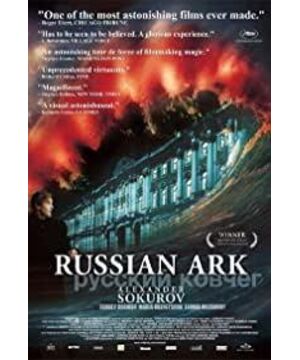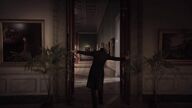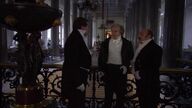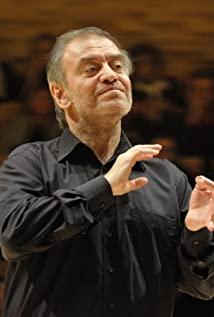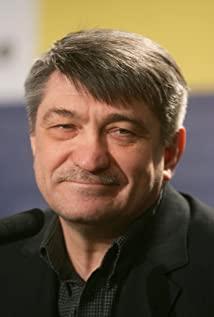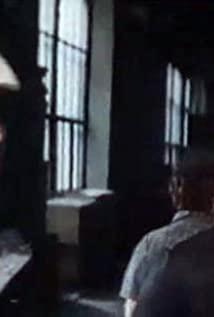Alexander Sokonov's 2002 work "Russian Ark" can be called a very extreme experimental film. The whole film is 90 minutes and only has one shot.
The whole film begins with a black screen. The voice of a male narrator (ie, the director, in the whole movie we only hear the voice, but not the person) tells us that he has experienced an accident and nothing else is known. When he regains consciousness , A group of young soldiers appeared on the screen, in St. Petersburg in the 18th century, about to attend a dance party. The narrator does not know why he came to Russia in the 18th century. While he was in confusion, he met another Frenchman, Marquis, who came here somehow. He was a diplomat who originally lived in France in the 19th century. So, the two "lost" walked together. They saw Peter the Great reprimanding his subordinates, and Queen Catherine rushed to the bathroom. After that, the two inadvertently walked into the famous Winter Palace in St. Petersburg, during which they passed through. 35 rooms, visited hundreds of famous western oil paintings and sculptures, witnessed the visit of the Iranian envoys to the Tsar, chanced upon the "Last Supper" of the Nicholas Caesar family, and the last grand waltz of the royal family in the late 1913s On the end of their "journey-French diplomats determined to stay here", the narrator "rides on the Russian Ark" in the boundless sea, began to wander forever. The entire journey spanned from 1800S to 2100S. Over the past century, it seems to have witnessed the prosperity and decline of the first socialist country on earth.
Russia•Europe
Russia straddles the two continents of Asia and Europe, where Eastern and Western cultures blend. Russia has always longed for the recognition of its European identity, but for Europe at the time, Russia was only their little brother, and they did not recognize Russia as a European one. The facts of the staff. As a representative of Europe, the French diplomat Marquis in the film constantly advertises European music and painting in front of the narrator in the first half of the film. For the beautiful Russian music, he claimed to be a German composer because "composing The family is all German"; for the outstanding Russian oil paintings and sculptures, he claimed to be imported from Italy or copied, because "Russians are all copycats." However, no matter how hard he tried to maintain his belief in "Europe is better than Russia", in the great Winter Palace, in the famous Hermitage Museum, he was collected by hundreds of art collections by Peter the Great and Catherine the Great. The treasure was shocked, and even he bowed his head to the Hermitage Museum itself, from the palace gates, passages to the gateposts, from the magnificent halls to the gorgeous exhibition rooms all made him sigh with emotion. In the last grand court ball, Marquis gave in. He said to the narrator, I want to stay, stay here. Here, the narrator uses the metaphor of Marquis to convey the director’s belief that “Russia belongs to Europe”.
Artwork•Art•Memory•History
In the film, Marquis and the narrator expressed their impressive admiration and shock to the Hermitage Museum itself, its magnificent architecture, the numerous oil paintings and thousands of sculptures in the museum's collection. The Winter Palace is located in the center of St. Petersburg and is known as the name card of St. Petersburg. It is filled with all the bedrooms, luxurious rooms and banquet halls of the czarist dynasty. At the same time, the successive czarist rulers, according to their personal preferences, will collect a large number of art works in it. Its collection reached its peak when the famous romantic queen Catherine II in history. The queen wanted to make it into An elegant rendezvous place full of artistic flavor, collecting a large number of Western oil paintings and artworks of ancient East, Egypt, and Rome.
Sparks once said that before memory became a science and reduced to a computer function, memory was an art, so memory was always integrated with literature, painting, sculpture, and most importantly, architecture. I want to say that maybe a more precise way of expression is: artwork is a kind of memory. Memory represents the past, and the past represents history, so artworks can also represent a kind of history. In the praise of the Hermitage Museum’s architecture and its internal works of art, we feel that the narrator (as a modern Russian) has a nostalgia for the history of the Hermitage Museum—a kind of nostalgia for its most prosperous period, and it seems that it is also a visit to Russia. The memory of a glorious history that never returns.
Here, I played a word game. I said that "artwork" is a kind of memory, but I didn't say that "art" is a kind of memory, because I think that in addition to the material "artwork", art also contains A kind of "artistic spirit", if the former is a kind of memory, it will become history, I don't think the latter will be. Therefore, art can be passed on and can live forever. Therefore, in this sense, the narrator (director) in the film not only has a nostalgia for the glorious history of Russia, but also calls for an "artistic spirit" that can be passed on through time, and this artistic spirit In the era of tsarist rule, it means the unique tenacity and perseverance of the Russian people. Because the city of St. Petersburg, where the Winter Palace is located, was established by Peter the Great in the boundless swamp and dark forest. After the establishment of St. Petersburg, people began to build it. The Winter Palace and Hermitage Museum. Therefore, in modern Russia, the spirit of art also contains this meaning. For this reason, St. Petersburg is considered to be the "Russian Ark that never falls." I think the spirit of building St. Petersburg can help the Russian people get out of trouble at all times.
Emotional point•One mirror to the end
The film is 90 minutes in length. I think people who have watched it are very impressed with one of the scenes. In about 46 minutes, the camera "walked" out of the Hermitage Museum to show that Catherine II was slowly walking out of the stage of history. For the first 45 minutes, the camera from the perspective of the narrator has been wandering around the Hermitage Museum to visit the museum. At about 46 minutes, Marquis and the narrator met Catherine II in the museum. She looked weak. When Catherine II With the help of his servants, Shizai walked out of the museum to a long snow-filled road outside the museum, and staggered along the long snowy road, while the narrator (ie the camera) followed behind him and pushed forward slowly , At this time, the picture changes from interior to exterior, from closed to open, with the snowflakes spreading over the entire long road, giving people a feeling of complete and sudden enlightenment, just like a resentment that has been accumulated in the heart for a long time. Be released. Even if less than 2 minutes later, the lens was turned indoors again. Here, it is not accidental that 46 kinds of moving to the outdoors.
Usually a great movie has three plot points and one emotional point, the latter often happens in the middle of the film. Generally speaking, the emotional point divides the whole story into two halves, which is the turning point of the protagonist's emotions. Here, Marquis changed his mood before and after this scene. In the first half, he was a complete European supporter, that is, he did his best to express disdain for Russian music, painting, etc., but there are too many in the Hermitage Museum. The shock caused his original beliefs to be subverted, and from this scene, we will find that Marquis took the initiative to join the grand waltz ball, and finally decided to stay here.
As mentioned earlier, there is only one lens in the whole movie, using the "one shot to the end" approach, but I don’t feel the monotony of the lens at all. The reason is that the lens’s sliding and panning are done beautifully. In the same lens, it shows the characteristics of the changeable lens. The pleasure of the long shot is "discovery". In the shot, we, Marquis and the narrator, discover the secrets of the Winter Palace and the Hermitage Museum-Peter the Great reprimands his men, Catherine the Great rushes to the toilet, Nicholas Kay The Last Supper of the Sai family, we witnessed the luxurious life of the Tsar, admired hundreds of world-famous paintings and sculptures, witnessed the decline of Russia, encountered angels and death, and finally boarded the "Ark" with the narrator. Wandering on the boundless sea, wandering.
The sea is rolling forward, history is rolling forward, the utopia of the past is dead, our hearts are not dead, because we believe that the "spirit of art" is not dead.
In the artistic "fun" of "One Mirror to the End", Alexander Sokonov showed us the charm of art-the charm of "artistic spirit".
I like Russia, and may the Russian Ark never sink.
2006.6.4
View more about Russian Ark reviews


